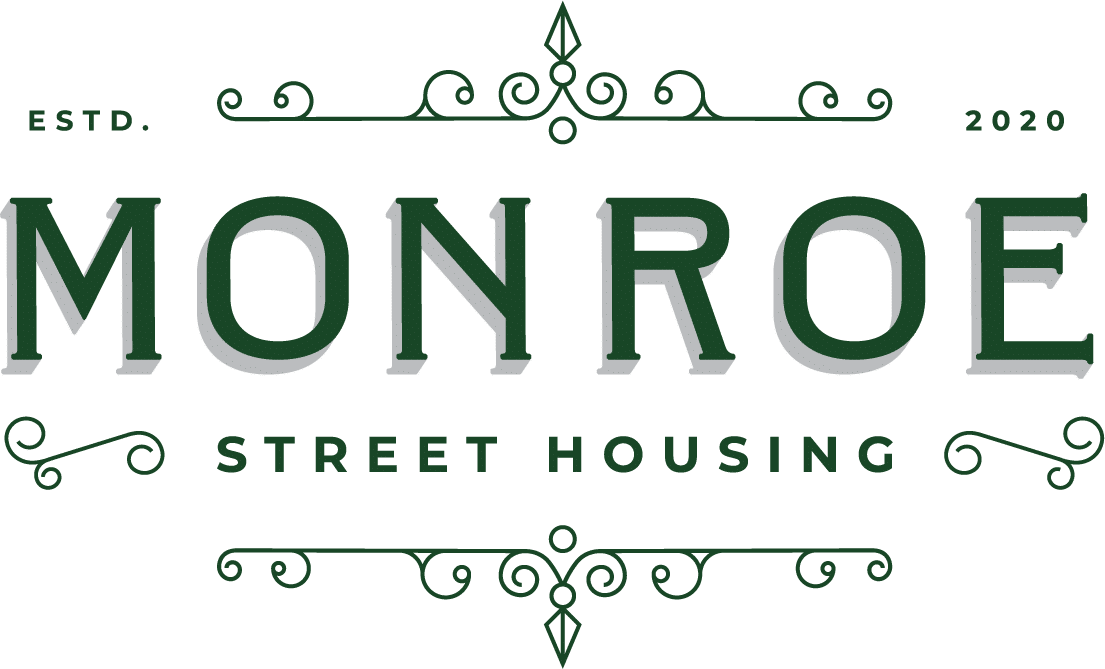National Recovery Month honors the bravery of individuals who choose to live in recovery. It celebrates personal victories while challenging stigma. This month also reminds communities that recovery is possible with the right support.
At Monroe Street Housing, we actively honor this month by sharing resident stories of hope. We also provide supportive housing programs that encourage lasting sobriety and healthier futures.
What Is National Recovery Month?
Every September, National Recovery Month brings attention to recovery from mental health and substance challenges, showing treatment works and life can improve.
This campaign highlights personal recovery stories, treatment resources, and community support systems. It empowers individuals by connecting them with services and reducing feelings of isolation. National Recovery Month also educates the public about the importance of compassion, prevention, and access to care.
The observance is effective because it combines awareness with visibility. People in recovery share their journeys publicly, showing others that addiction does not define them. Families, professionals, and organizations join in, creating a collective voice that reduces stigma. By strengthening these connections, National Recovery Month builds a culture of hope and possibility.
The History and Purpose of Recovery Month
Recovery Month began in 1989, started by the Substance Abuse and Mental Health Services Administration. Originally, it focused only on addiction treatment successes. Over time, the observance expanded to include mental health awareness and overall wellness.
The purpose has always been to celebrate the progress of individuals in recovery and promote effective treatment options. Over the years, activities have grown from small local events to nationwide walks, educational campaigns, and community gatherings. Today, Recovery Month reaches millions of people and inspires greater acceptance of recovery in everyday life.
The growth of Recovery Month has also reshaped how communities view addiction. What began as a health-focused campaign has become a cultural movement. Faith groups, schools, treatment centers, and housing programs now create events each September. These efforts strengthen local networks, expand access to information, and encourage policies that support long-term recovery.
Why Raising Awareness About Addiction Matters
Addiction continues to affect millions of families across the country. It touches every age, background, and income level, often in silent and painful ways. Raising awareness helps break the stigma that keeps people from seeking help. When society talks openly about addiction, more people realize treatment is possible.
Awareness also pushes communities to invest in prevention, accessible treatment, and long-term recovery support. It creates empathy, showing that recovery is not weakness but a sign of strength. Most importantly, awareness saves lives. When people feel acknowledged and supported, they are more likely to seek help and begin their healing journey.
Awareness also improves early intervention. When communities recognize the signs of addiction sooner, they can respond before lives are deeply harmed. Learning the facts helps break stigma, encourages compassion, and leads to stronger recovery outcomes. By raising awareness, society creates an environment where recovery can be embraced and sustained.
How Recovery Month Supports Individuals in Recovery
Recovery Month gives people in recovery the visibility and encouragement they often need. It reminds people that they do not have to face recovery alone. By providing resources and building awareness, it helps individuals stay motivated and connected to supportive communities.
Here are some key ways it supports people in recovery:
- Encouragement Through Shared Stories: Hearing others share their recovery journeys gives individuals hope and strengthens belief in their own progress.
- Connection to Resources: Recovery Month highlights treatment programs, housing support, and community services that people may not know exist.
- Reduced Stigma: Public celebrations and conversations show that recovery is possible and worthy of respect, not shame.
- Motivation to Continue Sobriety: Events and recognition create milestones that help individuals celebrate progress and stay focused on their goals.
- Sense of Belonging: Being part of a national movement fosters pride, solidarity, and strength for those walking the path of recovery.
By offering encouragement, resources, and connection, Recovery Month strengthens the foundation individuals need to maintain sobriety. It turns isolation into belonging and transforms personal victories into community celebrations. For many, these supports are not just inspiring—they are life-changing.
Events and Activities to Participate in National Recovery Month
National Recovery Month includes activities that encourage communities to come together, share, and celebrate recovery. These activities raise awareness while also providing direct support to those in recovery. Participation is open to everyone—families, professionals, and community members alike.
Communities often organize walks or runs to recognize and honor recovery. These events bring people together in solidarity and health. They also serve as a visible reminder that recovery is active, powerful, and supported by communities.
Workshops focus on topics like relapse prevention, mental health support, or family healing. They provide practical tools that participants can apply immediately. People leave with more knowledge, confidence, and awareness of available resources.
Individuals share personal stories of addiction and recovery in safe, open settings. These events create empathy while reducing shame. They also give hope to those still struggling by showing recovery is within reach.
Local fairs include booths from treatment centers, nonprofits, and recovery groups. Visitors learn about services while connecting with supportive organizations. The casual setting makes recovery resources more approachable and less intimidating.
Online panels and webinars allow people to participate from anywhere. These events increase access for those unable to attend in person. They also connect individuals with broader perspectives and national experts in recovery.
These events transform Recovery Month into more than just a campaign—they create action, connection, and hope. Each activity reinforces the message that recovery is possible and celebrated. By participating, communities show that no one has to face addiction alone.
Stories of Hope: Celebrating Recovery Successes
Stories of hope are at the heart of National Recovery Month. They allow individuals in recovery to share personal experiences with honesty and courage. These stories show that sobriety is possible and recovery can bring new purpose, stability, and joy.
Hearing real-life stories breaks down stigma and replaces it with compassion. They help shift the view of recovery from weakness to a powerful act of strength. They also provide encouragement for people who may feel hopeless or afraid to ask for help.
Stories can be shared at community events, support group meetings, or online recovery platforms. They are also featured in newsletters, podcasts, and local campaigns. Many organizations invite people in recovery to contribute by speaking, writing, or volunteering.
When stories are shared, they give power back to individuals who once felt powerless. They give hope to others by showing that change is truly possible. Each voice added strengthens the larger movement of recovery.
Resources for Those Starting Their Recovery Journey
Beginning recovery can feel overwhelming, but resources exist to guide and support every step of the way. These resources provide structure, encouragement, and practical help for people choosing sobriety.
Here are some important resources available to those starting recovery:
- Treatment Programs: Professional programs offer medical care, counseling, and structured support for people seeking sobriety.
- Support Groups: Peer groups like AA, NA, or local recovery meetings create community and accountability.
- Recovery Housing: Safe housing provides a sober environment where individuals can focus on building healthier routines.
- Counseling Services: Therapists and counselors help people address underlying issues and build coping strategies.
- Educational Materials: Books, podcasts, and online guides provide knowledge about addiction, recovery, and relapse prevention.
- Helplines and Hotlines: Free confidential hotlines connect people with immediate help and local resources.
Resources like these show that recovery is never a journey taken alone. Accessing the right mix of support creates a stronger path toward healing. With every resource used, individuals gain more tools to build a lasting life in recovery.
How Families and Friends Can Get Involved

Healing touches not just one life, but also their entire circle of family and friends. Their support can make a powerful difference in long-term success. Loved ones can provide encouragement, accountability, and compassion during difficult times.
Here are ways families and friends can actively participate:
- Learn About Addiction: Understanding addiction as a health condition builds empathy and reduces judgment.
- Join Family Support Groups: Groups like Al-Anon help families share experiences and gain coping strategies.
- Encourage Treatment and Recovery: Gentle encouragement can motivate a loved one to enter or continue treatment.
- Celebrate Milestones: Recognizing recovery anniversaries or progress boosts confidence and motivation.
- Create a Supportive Environment: Keeping the home free of substances supports sobriety and healthy routines.
- Practice Patience and Compassion: Recovery is not always linear, and setbacks may happen. Compassion helps maintain hope through challenges.
When families and friends are involved, recovery becomes stronger and more sustainable. Their love and support create a safety net that fosters resilience. Together, they show that recovery is not only possible but also worth celebrating every step of the way.
Promoting Mental Health Awareness Alongside Recovery
Recovery does not only focus on sobriety—it also involves mental health. Many people face both substance use challenges and mental health struggles. Promoting awareness of both ensures individuals get full support rather than only partial care.
Here’s how you can help spread understanding about mental wellness and recovery:
- Talk Openly About Mental Health: Normalizing conversations about stress, anxiety, or depression reduces shame and encourages people to seek help early.
- Provide Access to Screenings: Free or low-cost mental health screenings help identify concerns before they grow into more serious conditions.
- Share Educational Campaigns: Community campaigns spread accurate information and challenge myths about mental illness and recovery.
- Encourage Holistic Wellness: Promoting exercise, sleep, and mindfulness supports mental health and strengthens recovery.
- Support Workplace Initiatives: Workplaces that provide mental health days or employee assistance programs create healthier, more compassionate environments.
- Partner With Local Professionals: Collaborating with mental health providers connects individuals to therapy and treatment they might not otherwise find.
Promoting mental health awareness alongside recovery creates a complete picture of healing. It shows that recovery is not only about staying sober but about creating balance and building a healthier life. Communities that support both create stronger, more lasting recovery outcomes.
Tips for Staying Motivated in Recovery During Awareness Month
Awareness Month provides encouragement, but staying motivated in recovery still requires daily effort. Recovery is a lifelong process filled with victories and challenges. The right habits help people hold onto hope and continue moving forward.
Here are some practical ways to stay motivated:
- Set Small, Achievable Goals: Breaking big goals into smaller ones makes progress feel steady and manageable.
- Celebrate Every Milestone: Recognizing weekly or monthly achievements keeps motivation high and shows progress is real.
- Stay Connected to Community: Regular involvement in recovery groups or events prevents isolation and builds accountability.
- Create a Daily Routine: Structured days reduce stress and keep the focus on healthy habits.
- Use Journaling or Reflection: Writing about challenges and successes provides perspective and helps track personal growth.
- Practice Self-Compassion: Accepting mistakes without shame helps prevent relapse and keeps motivation strong.
- Volunteer or Share Your Story: Helping others builds purpose and reminds you of your own progress.
Motivation grows when recovery feels meaningful and supported. During Awareness Month, individuals can lean on events, stories, and communities for encouragement. By building healthy routines and celebrating victories, people create a recovery journey they can sustain with strength and pride.
The Role of Sober Living Homes in Supporting Recovery Month
Sober living homes give people in recovery a safe and structured place to rebuild their lives. They are not treatment centers but supportive environments where residents can focus on long-term healing. Living with others who understand the same struggles creates accountability and reduces feelings of isolation.
Sober living homes usually have simple guidelines like maintaining sobriety and taking part in recovery meetings. This structure helps residents build consistency in daily life, which is vital during recovery. Small responsibilities, like chores or shared cooking, may seem simple but teach accountability and independence.
During Recovery Month, sober living homes play an even bigger role. They become spaces for group activities, shared reflection, and celebrating progress. Residents can connect with the wider recovery community through events, volunteering, or storytelling. Seeing others succeed builds the hope that you can, too.
For many people, sober homes provide the transition between treatment and living independently again. They help residents develop habits that prevent relapse and encourage stability. With the support of peers and mentors, people can focus on building new routines and goals.
Monroe Street Housing is Here to Support You
At Monroe Street Housing, we understand that recovery is not just about quitting substances. It is about creating a stable, supportive environment where healing can last. Our homes are designed to give residents structure, comfort, and community during every stage of recovery.
We provide programs that focus on accountability, daily routines, and personal growth. From peer support groups to structured living guidelines, each element helps residents rebuild confidence and independence. We also connect individuals to local resources, including counseling, job training, and health services.
Reaching out to us is simple. Whether you are seeking a sober living home for yourself or someone you love, our team is here to guide you. We listen with compassion and work with you to find the best fit for your journey.
Recovery can feel overwhelming, but you do not have to face it alone. At Monroe Street Housing, we walk beside you every step of the way. If you feel ready to move forward, we encourage you to connect with us today. Together, we can create a foundation for a healthier, brighter future.














